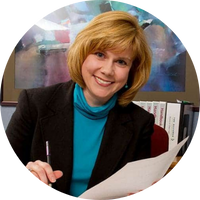Why Diversity and Inclusion Matters

Why do diversity and inclusion matter? That was the central question Deborah Biddle, of The People Company, answered for the participants in the first session in our diversity and inclusion series. According to Deborah, these issues are central to a company’s success. Gone are the days when firms could be profitable and a great place to work without thinking about diversity and inclusion. Through breakout sessions, interactive discussions, and information provided by Deborah, it was a lively workshop!
Understanding the definitions of diversity and inclusion are the basis for knowing why they are important.
Diversity is “the presence of people with different experiences, identities, and perspectives.”
Often we think of diversity in terms of what differences are visible. This definition expands that to include things we can’t see. Diversity comes in many forms as we learned during breakout sessions to discuss our own experiences and ideas. Something for companies to consider is whether their leadership teams are diverse and if the company’s population is somewhat reflective of the larger community of which they are a part.
However, it is not enough to simply have diversity; it must be valued. Valuing diversity means organization honors and respects the personal, social, and cultural diversity reflected in each employee. A company that values diversity treats people with dignity and respect, focuses not on what divides people but on the shared common ground, respects differences and works together as a team, and looks beyond stereotypes and preconceptions. This isn’t always easy to do but it can be done and is being done by many organizations.
Inclusion is “providing equal opportunity to all people to fully engage themselves in creating an environment and a cultural attitude whereby everyone and every group has value and is supported by a foundation built on trust and mutual respect.”
The question to ask is “who gets to be heard?” and hopefully the answer is “everyone’s voice is heard.” Inclusion is not about expecting that if others want to participate, they must conform to the social and cultural norms of the majority. This can lead to exclusion; employees who feel excluded are more likely to have health problems, have a degraded sense of workplace belonging and therefore demonstrate less commitment, are more likely to quit their jobs, perceive being excluded as a sort of punishment, and report that this is worse for their physical and mental wellbeing than being harassed or bullied.
![]() So that brings us back to the original question of why diversity and inclusion are important, and Deborah explained that besides it being the right thing to do, there is a very strong business case. She shared that the world is changing; our population is becoming more diverse and Deborah gave statistics to back up that assertion. The market situation is changing as well with women becoming the largest emerging market the world has seen. In addition, diversity and inclusion matter to employees more than ever. In fact, workforce demographics are becoming a more important decision point when a prospective employee considers joining a company. Team performance improves with a more diverse membership and innovation typically increases.
So that brings us back to the original question of why diversity and inclusion are important, and Deborah explained that besides it being the right thing to do, there is a very strong business case. She shared that the world is changing; our population is becoming more diverse and Deborah gave statistics to back up that assertion. The market situation is changing as well with women becoming the largest emerging market the world has seen. In addition, diversity and inclusion matter to employees more than ever. In fact, workforce demographics are becoming a more important decision point when a prospective employee considers joining a company. Team performance improves with a more diverse membership and innovation typically increases.
Another reason diversity and inclusion are important is financial. Diversity is positively correlated with profit: companies in the top 25% of gender diversity are 21% more likely to see above-average financial returns and companies in the top 25% of race/ethnic diversity are 33% more likely to see these above average returns. Deborah had many more interesting statistics about the financial benefits of companies valuing diversity and inclusion.
ACEC Wisconsin is sponsoring this series and three additional sessions are scheduled; I would highly recommend signing up and learning more about this topic.
Learn more about the Diversity & Inclusion Series
About the Guest Blogger
 Wendy Culver, SPHR, SHRM-SCP is Chief Human Resources Officer at Mead & Hunt and Chair of ACEC Wisconsin’s Diversity & Inclusion Committee. Wendy is an HR veteran who oversees multiple programs that foster company culture through frequent opportunities to work together and give back to the community.
Wendy Culver, SPHR, SHRM-SCP is Chief Human Resources Officer at Mead & Hunt and Chair of ACEC Wisconsin’s Diversity & Inclusion Committee. Wendy is an HR veteran who oversees multiple programs that foster company culture through frequent opportunities to work together and give back to the community.
